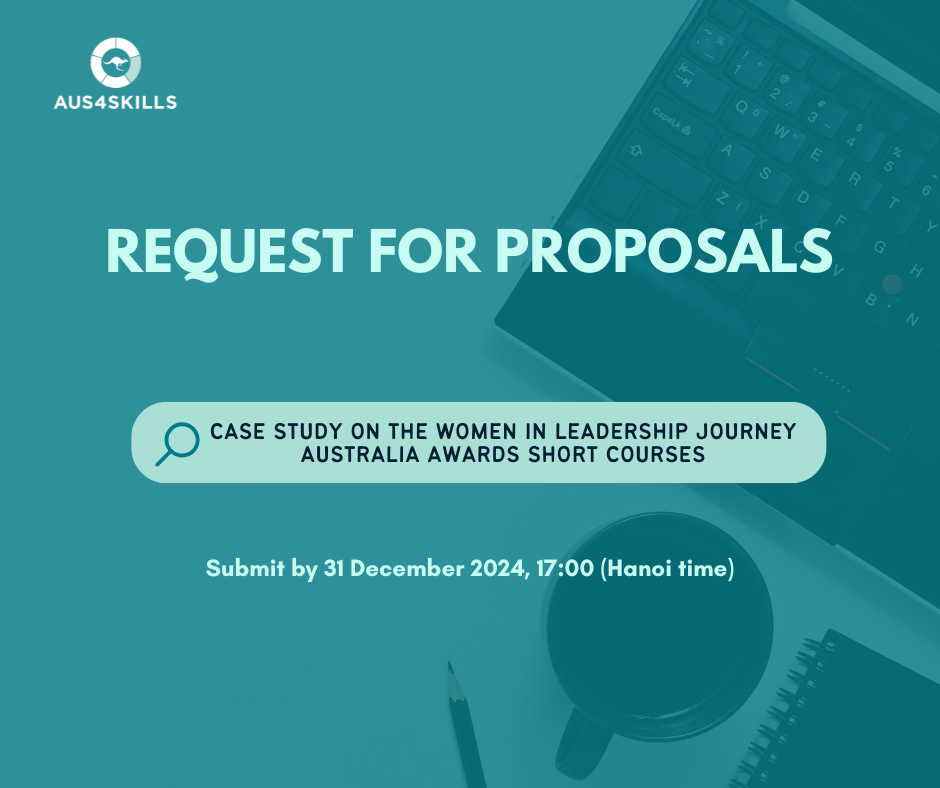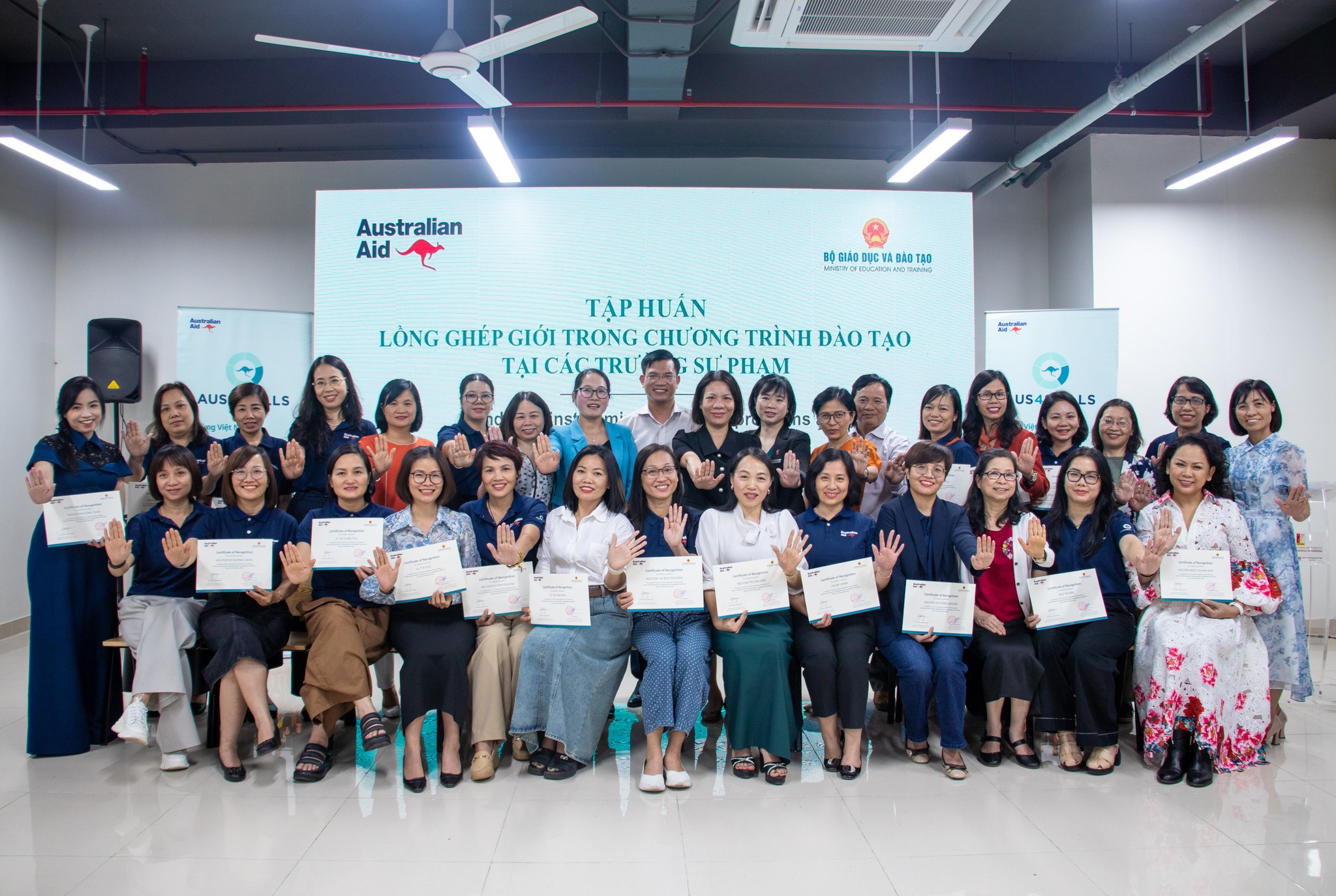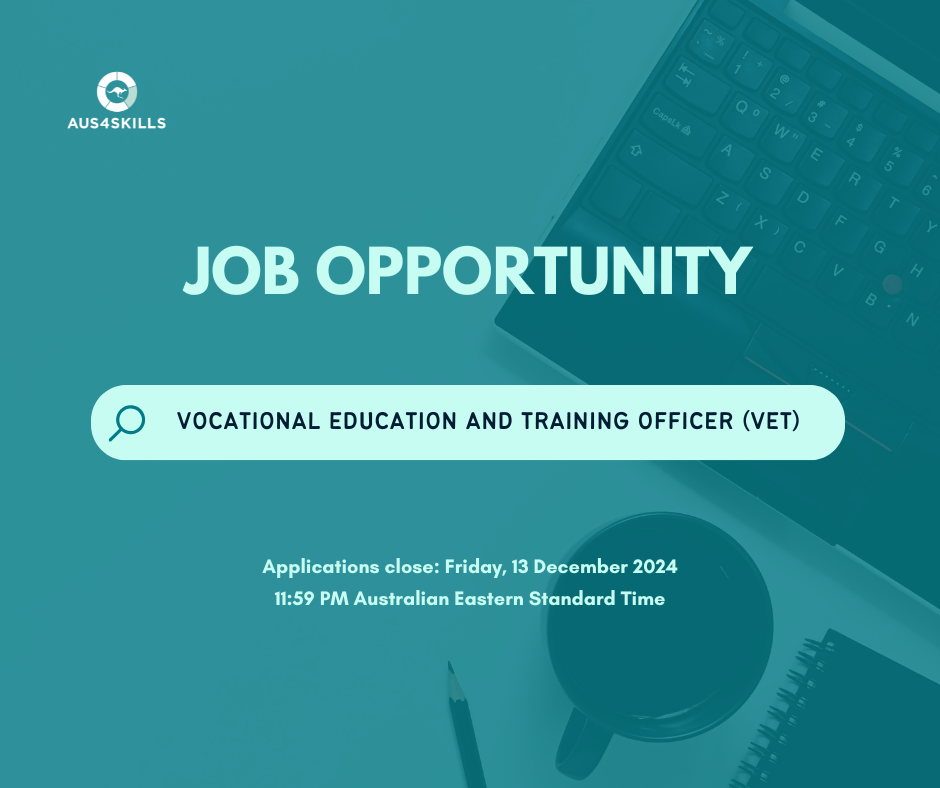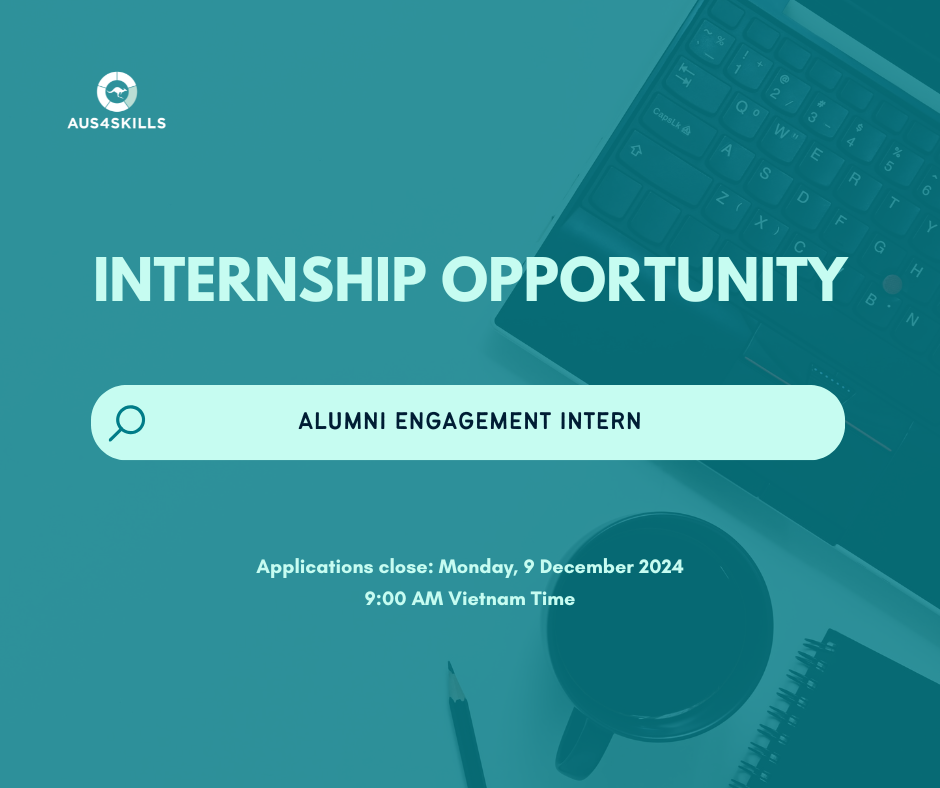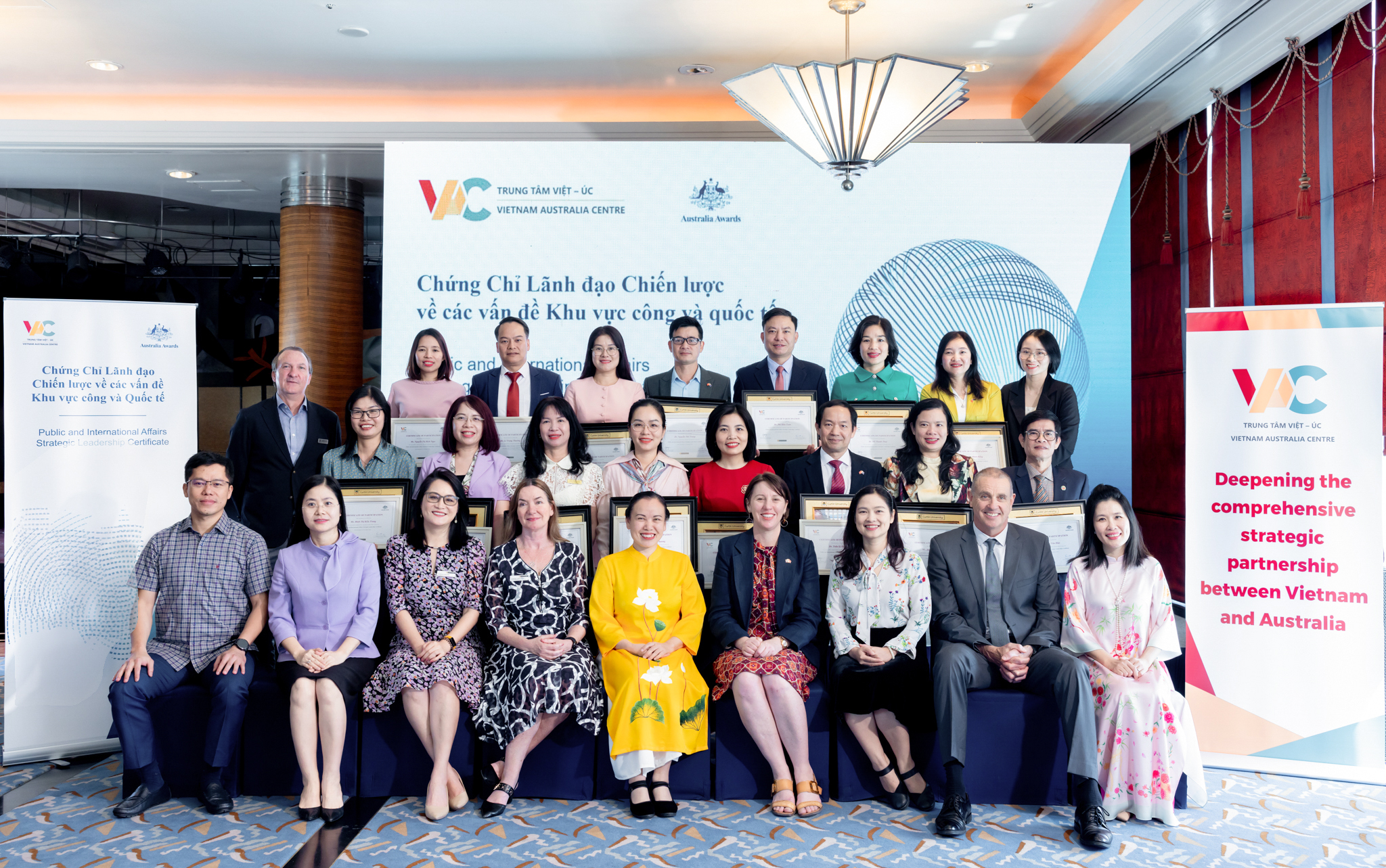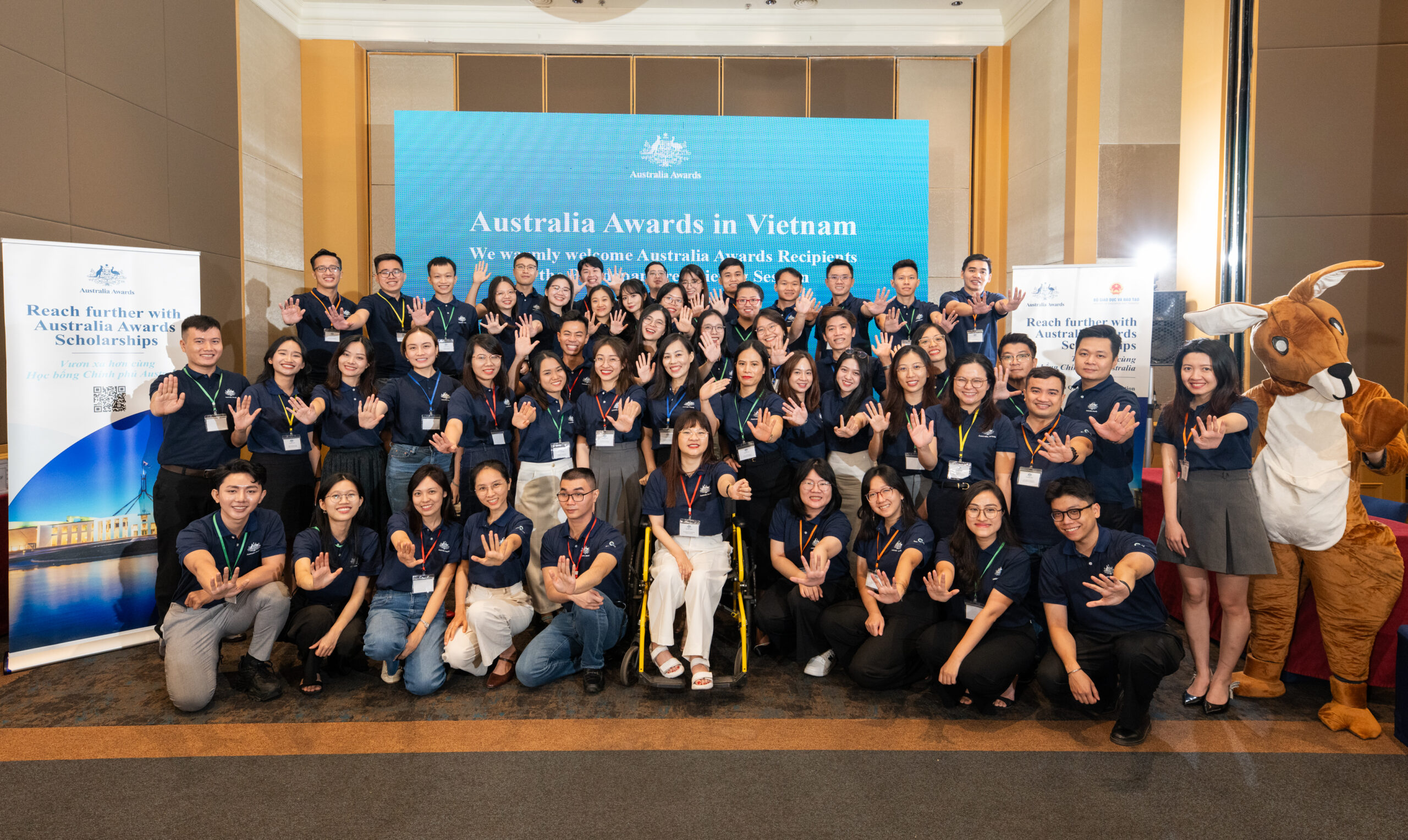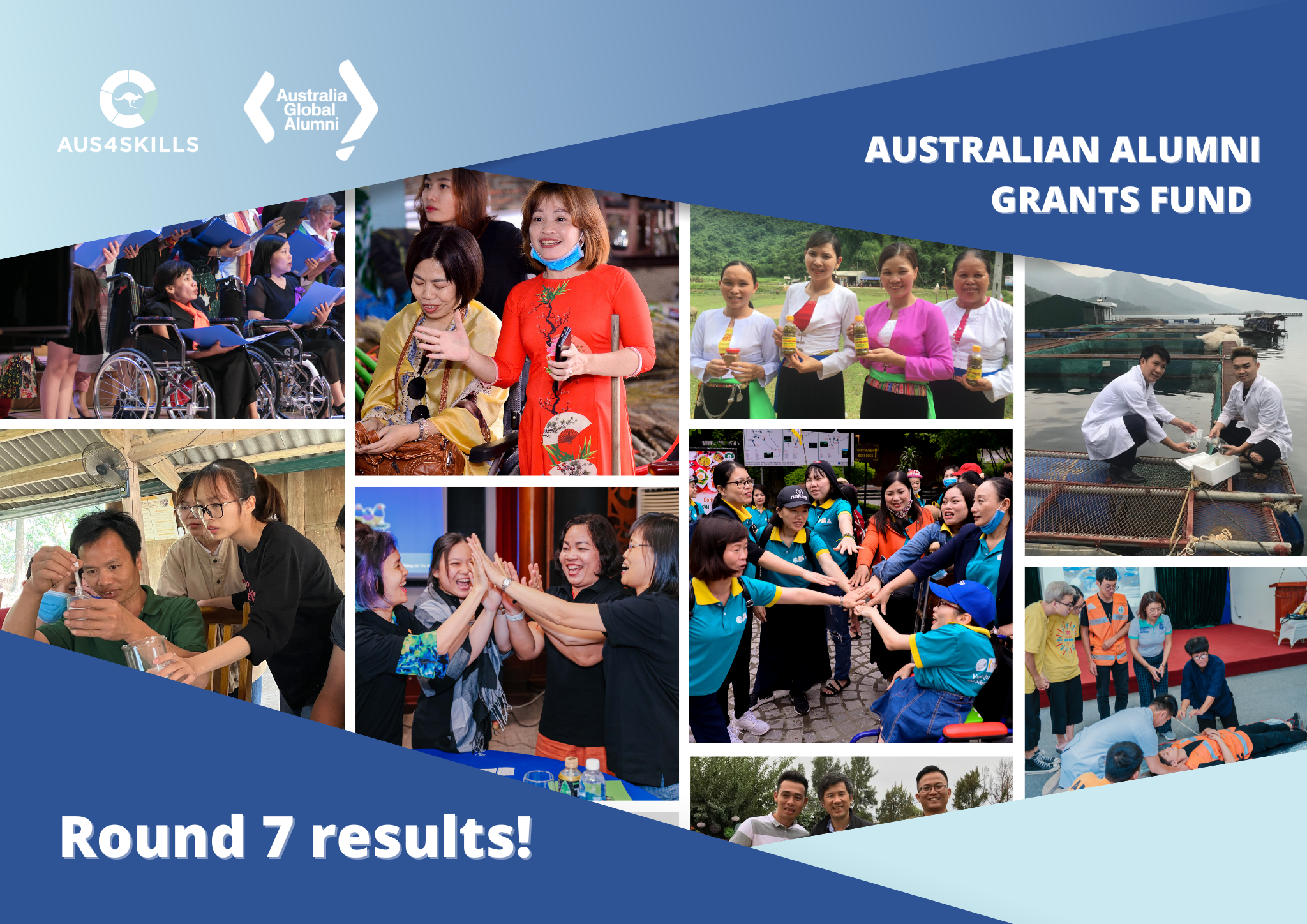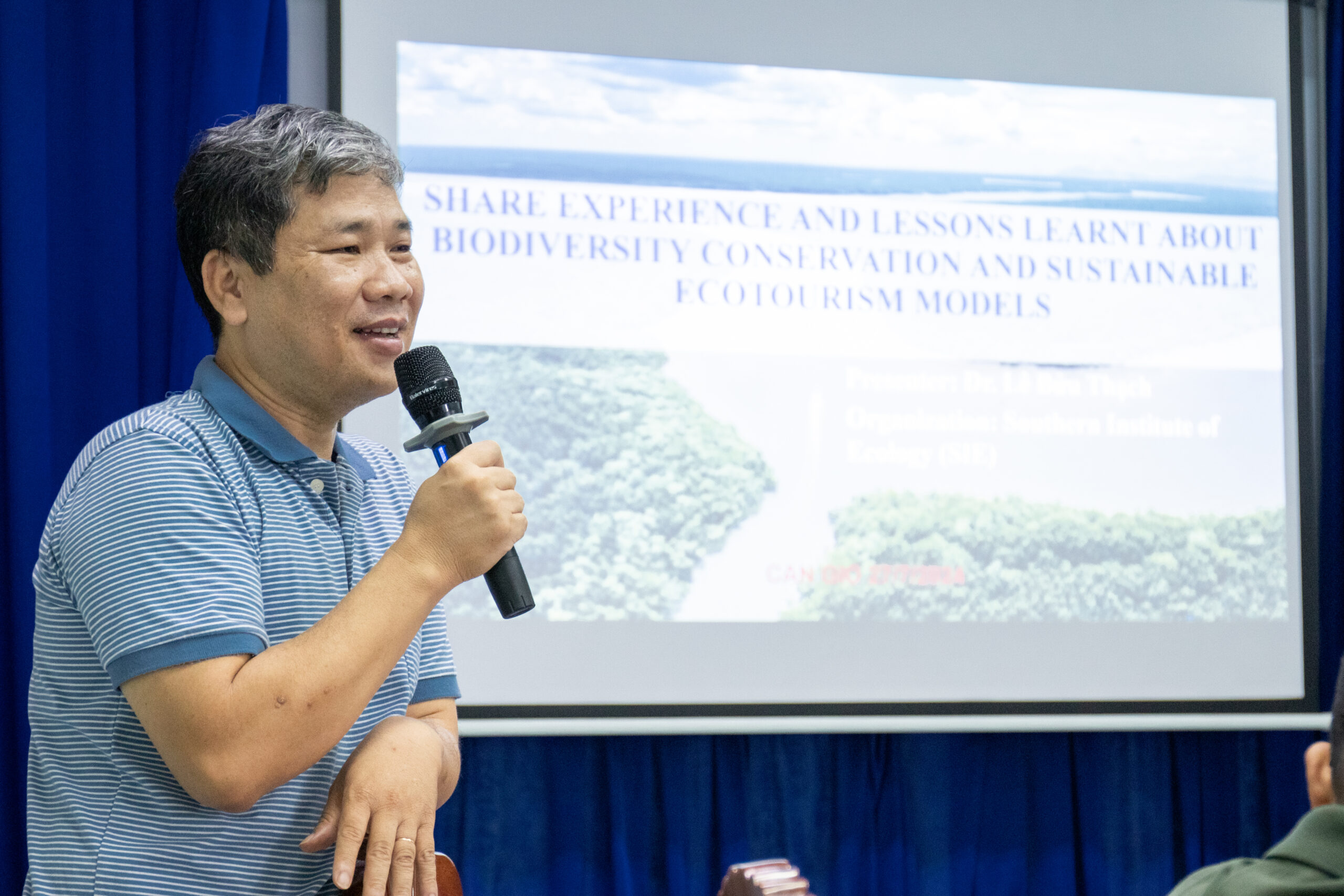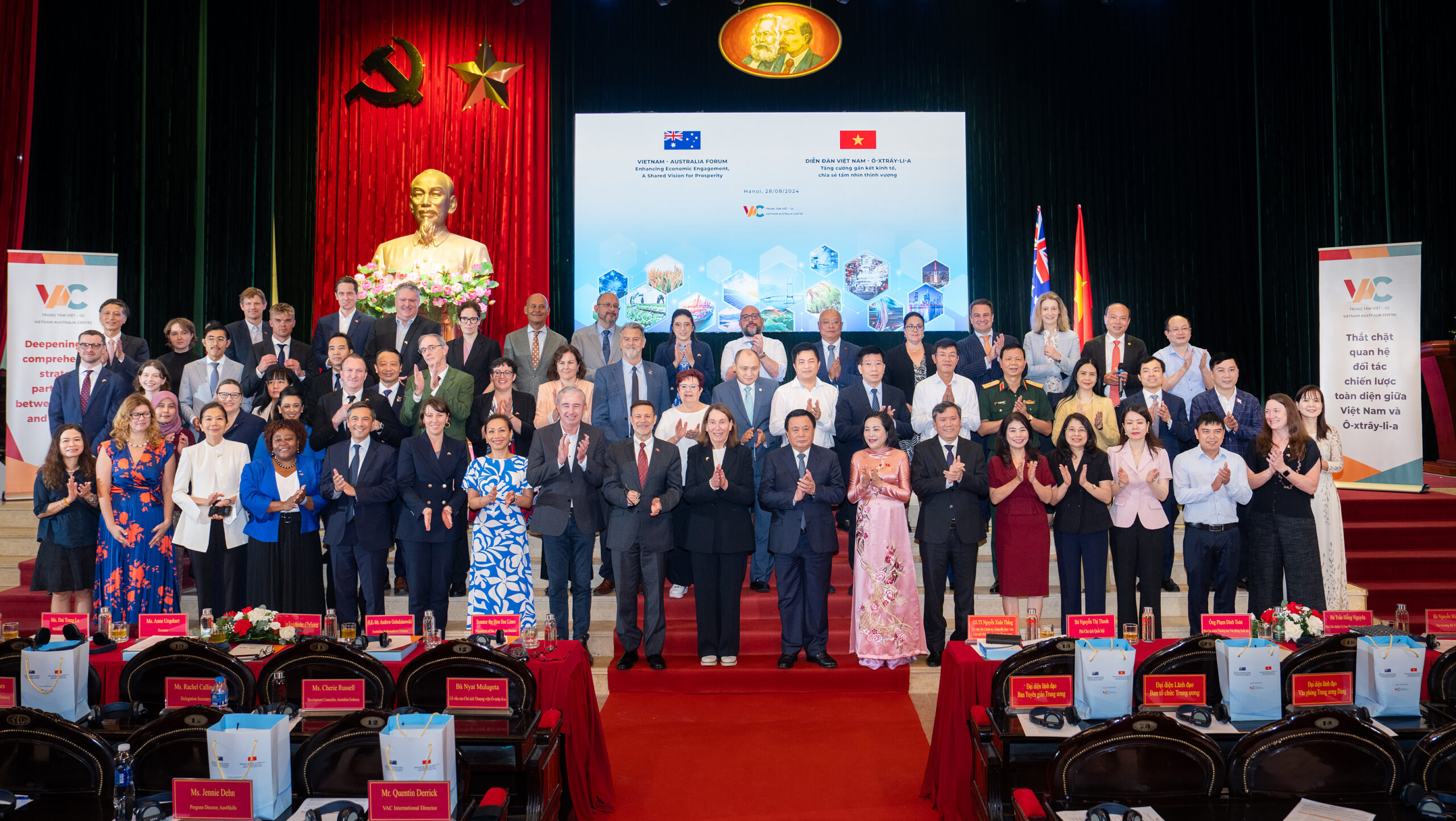Former Australian Ambassador Mr. Graham Alliband was conferred an honorary doctorate from Thai Nguyen University for his contributions to the university, marking a new chapter in his connection with Vietnam throughout 47 years. Tuoi Tre (Youth) Newspaper had a recent exclusive interview with him.
Graham Alliband – Former Australian ambassador with 47 years working in Vietnam Graham Alliband – Former Australian ambassador with 47 years working in Vietnam Graham Alliband – Former Australian ambassador with 47 years working in Vietnam
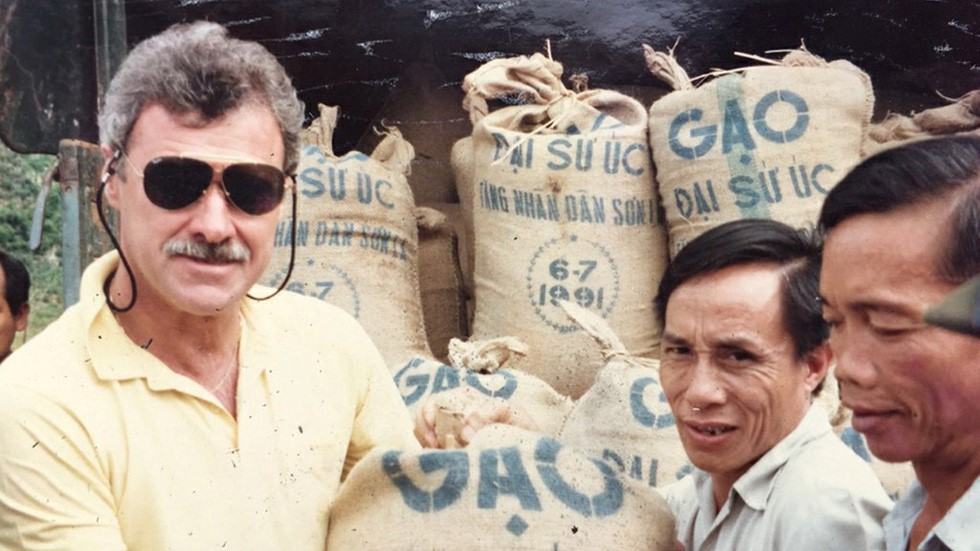
Australian Ambassador to Vietnam Graham Alliband is pictured during a trip to deliver food aid in Son La province, Northern Vietnam in 1991
* Congratulations on your receiving the honorary doctorate from a very important Vietnamese University. You have been devoting and living most of your life in Vietnam, how could you briefly highlight the country’s fundamental changes since you first set foot on this land in 1972?
I have witnessed extraordinary changes over the 47 years since I first set foot in Vietnam in January 1972 as a young diplomat at the Australian Embassy in Saigon. In 1972, the war was still raging and I could hear the bombs being dropped by American planes in provinces surrounding Saigon. I was able to see firsthand the destroyed villages, visit the camps of dislodged villagers fleeing the war and even visit prisons where captured Viet Cong fighters were being held. Then came the very welcome Paris Peace Agreement in January 1973. The temporary peace the Agreement brought allowed me to travel extensively throughout southern Vietnam. One particular memory I have among many memories during my time in Saigon, was the visit with the Australian Ambassador by an Australian Airforce DC3 to Ca Mau. Ca Mau was then one street with 3 shops. What an extraordinary contrast with the large, bustling Ca Mau city I visited in July. This contrast is a symbol of the amazing changes that have taken place in Vietnam since then.
In mid-1973, Australia opened an Embassy in Hanoi, so Australia had two Embassies in Vietnam, Saigon and Hanoi, but unfortunately for political reasons I was not allowed to travel to Hanoi. My posting finished in January 1974, 15 months before the liberation of Saigon.
In January 1978, I was posted as First Secretary to the Australian Embassy in Hanoi. Hanoi was regarded as a hardship post so the posting was only for one year. The year 1978 was a very difficult year for Vietnam, both internally and in its external relations. Pol Pot’s forces systematically attacked Vietnamese villages across the southern border. As China was supporting Pol Pot, Vietnam’s relations with China rapidly deteriorated. China cut off its aid to Vietnam including rice supplies. This coincided with a poor rice harvest in Vietnam resulting in serious food shortages throughout the country. Life was very difficult and rations were cut. Basic consumer goods mostly supplied by China virtually disappeared. At the same time the Vietnamese Government undertook a crackdown on the private enterprise in the south which only exacerbated the situation. Many people were hungry and the country was desperately poor. Thousands of Vietnamese especially those of Chinese origin left the country by sea and a number of boats even reached Australia.
In January 1981, I resigned from the Department of Foreign Affairs after 10 years as a diplomat and become Director of an Australian NGO with overseas aid projects. This position brought me to Vietnam for a third time. In the first half of 1980, I made two trips to Hanoi which resulted in the provision by the Australian NGO of the first milking machines to Moc Chau dairy farm, medical supplies to Thanh Tri Hospital in Hanoi and artificial insemination equipment for the Ba Vi cattle farm. Life was still very difficult in Vietnam. A vivid memory I have is the visit to a village growing jute on the banks of the Red River in Hung Yen. The village was desperately poor and the children were clearly suffering from malnutrition.
My next encounter with Vietnam was a much more satisfying one when at 43 years old I was appointed Australian Ambassador in August 1988 for three years. The shortcomings and failures of the Bao Cap policies were finally recognized and Doi Moi was introduced in 1986. Doi Moi brought a new vigour to Vietnam and the country started to change in many ways. Probably the most significant change was the policy reversal regarding private enterprise which was now allowed. The most obvious symbols of the rebirth of private enterprise were the restaurants and coffee shops which started to open in Hanoi and the appearance of the first few privately-owned vehicles appearing on Hanoi roads. Another symbol of the renewal that was taken place in Vietnam was the sudden appearance of bright street lights in Hanoi in early 1989.
The economic policy changes since Doi Moi have been truly revolutionary and have resulted in the very dynamic and the rapidly growing, booming economy of today. I have just witnessed the extraordinary changes that are taking place throughout the country during a month-long visit by car from Hanoi to the Ca Mau peninsula. The contrast between the first time I took the road trip to Saigon and Dalat in 1990 and now is huge.
The most vivid impression I have from the trip is the extraordinary hotel construction boom along the spectacular coastline of central Vietnam in places like Nha Trang/Cam Ranh, Danang/Hoi An, Qui Nhon and Quang Binh, which will make Vietnam a leading world destination for high quality tourism. The prediction I made in 1991 as Ambassador in speeches to the Australian Chambers of Commerce in Hong Kong and in Bangkok that Vietnam was the next Asian Tiger have come true.
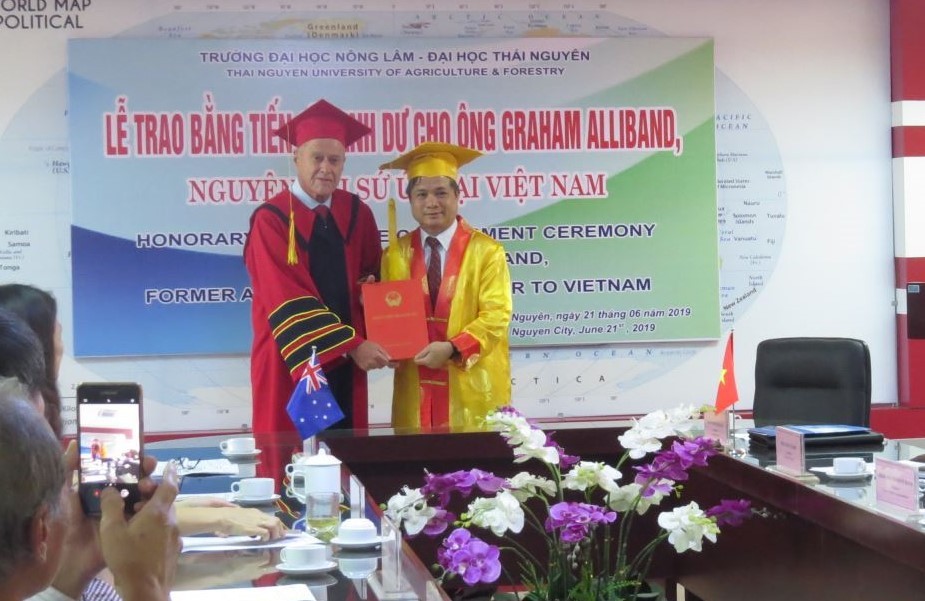
Mr. Graham Alliband was conferred an honorary doctorate from Thai Nguyen University of Agriculture and Forestry. Photo: Website of Thai Nguyen University.
* As the Australian Ambassador in Hanoi during 1988-1991, a very difficult time in the country (facing embargos, Eastern European bloc’s collapse, hostility from China…), what have you done that you think have contributed to the improvement of life in the country? Helped make changes in the Government’s policy toward Australia and the West? Please highlight a few achievements that you are most proud of?
During my posting as Ambassador along with the economic market reforms being introduced, Vietnam started to reach out to countries in the West. This move was accelerated after the collapse of the Soviet Union in 1990. As one of the handful of Western countries with Embassies in Hanoi, providing aid to Vietnam, Australia was ready to assist Vietnam expand its external relations and end its diplomatic isolation from the West, even in the face of opposition from the US, a close ally of Australia, and Singapore. As Ambassador, I actively supported the Australian Government’s efforts to help solve two critical issues which were hampering Vietnam’s international relations – the refugee crisis stemming from the ‘boat people’ exodus from Vietnam, and Vietnam’s military presence in Cambodia.
One thing I am proud of is the speech I made in Vietnamese on Vietnam Television trying to persuade people not to leave Vietnam by boat, following a visit I made to Vietnamese boat people camps in Hong Kong. I cited the positive economic developments and the new opportunities opening up in Vietnam and the reluctance of countries like Australia to resettle economic refugees from Vietnam. Another event that I am proud of is the first telephone call I made from Ho Chi Minh City to Australia via the new international telecommunication links through the INTELSTAT satellite system which was installed by the Australian company OTCI. Vietnam’s direct links with the INTELSTAT system was a symbol of Vietnam’s entry into the international community and the end of its complete dependence on the Soviet Union. Previously all international telephone calls were routed via Moscow with a waiting time of 5 to 6 hours!
There were a number of areas where I facilitated the strengthening relations with Australia, such as the signing of a bilateral trade agreement and an investment agreement, the beginning of negotiations for a consular agreement, the promotion of investment by Australian companies in Vietnam, the exchange of visits by Vietnamese and Australian academics, the provision of disaster relief aid helping victims of floods in Moc Chau, and typhoons in Cu Lao Cham island in Quang Nam and in Tien Hai in Thai Binh, and the introduction of a scholarship program in tertiary level economics at the Australian National University for researchers at MPI’s Central Institute for Economic Management (CIEM).
I could see the critical importance of expanding the teaching of English language if Vietnam was going to join the International community. I facilitated the first Australian volunteer English language teacher to work in Vietnam and using my small Ambassador’s Discretionary Fund, I provided equipment and English textbooks to the Foreign Language Faculties at five universities in Vietnam. I also supported with equipment and books the establishment in mid-1991 of the first semi-independent English language centre in Hanoi (perhaps in all of Vietnam), managed by two English language teachers from the then Hanoi University of Foreign Languages, both of whom had studied English language in Australia, under an Australian-funded English language scholarship program managed by UNDP.
In a small way I think I contributed to a more open approach by the Vietnamese Government in dealing with the diplomatic community in Hanoi. I was the first Western Ambassador to recruit local Vietnamese staff directly and not go through the Service Department for Foreign Diplomatic Corps and the first Ambassador to be allowed to invite the families of Embassy staff to the Embassy for social functions, including the celebration of Tet.
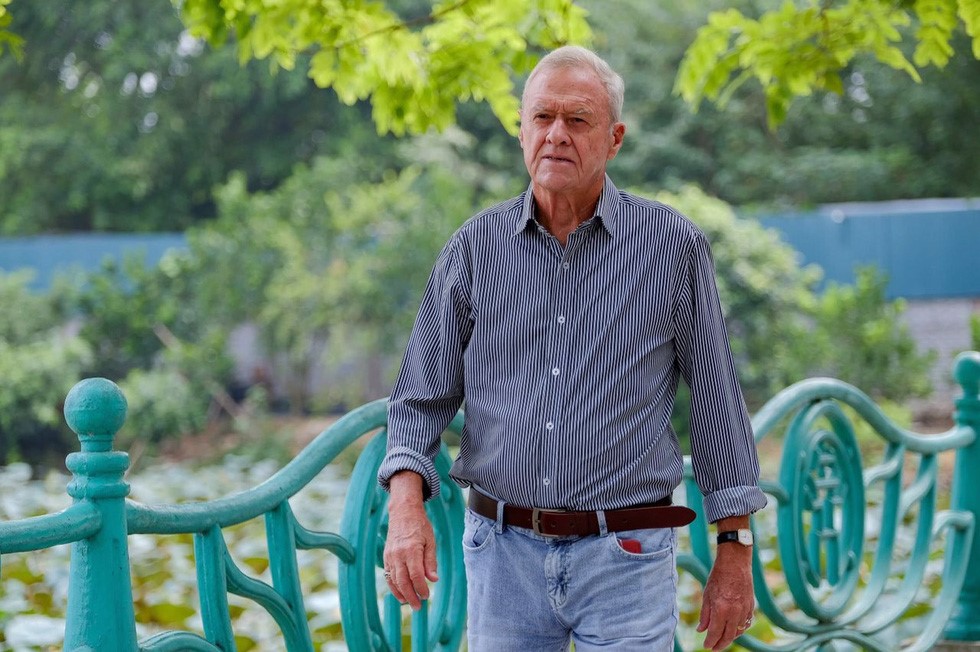
Former Australian Ambassador to Vietnam Graham Alliband is pictured in Hanoi in July 2019.
* Being highly experienced in facilitating and promoting Australian development aid, what is your personal assessment on the impact of the assistance throughout in the country? How much did it help the government enhance its capabilities?
Generally speaking foreign aid to Vietnam has made a huge impact on Vietnam’s development, most visibly in the provision of new infrastructure such as highways, bridges, airports, seaports and city water supplies, in particular by the World Bank, the Asian Development Bank and Japan. Australia has made a significant contribution to infrastructure by the provision of town and village water supply systems and by the construction of two bridges across the Mekong River, the first cable bridge to be constructed in Vietnam at My Thuan, Vinh Long and the recently opened Cao Lanh bridge. Australian aid has also focused on the provision of soft infrastructure such as skills training and capacity building to strengthen Vietnam’s institutional capacity at the central and local levels and at tertiary educational institutions. Australian aid has also been directed at promoting an inclusive, equal society in Vietnam through programs encouraging gender equality and the empowerment of women and providing opportunities for persons with disability to lead normal lives.
Probably the most well known and most successful area of the Australian aid program has been the provision of fully paid, long-term Australia Awards scholarships to study in Australia and more recently short-term scholarships for skills training in Australia and Vietnam under the Aus4Skills program. Altogether over 5,000 Vietnamese have benefited from the Australia Awards long-term scholarships and another 2,500 have undergone short-term training under the Australia Awards Fellowships and Aus4Skills. In the eight years I have been involved in managing the Australia Awards Scholarship program I have no doubt that the those who benefited from the scholarships have contributed significantly to Vietnam’s development in a range of fields and in important positions in government, universities and in all areas of society.

Australian Ambassador to Vietnam Graham Alliband makes an international phone call to Australia in this supplied file photo.
* Regarding Vietnam’s current education system, which areas do you see the country needs the most and most urgently to improve it? E.g., can you comment on the fact that Vietnam possesses a large number of PhD graduates, yet it hardly produces any internationally-recognized research and development (R & D) work?
Vietnam has made considerable strides in reforming its education system over the past few years to enhance educational quality to bring it into line with international standards. Particularly noticeable has been the recent efforts by the Vietnamese Government to improve the vocational educational system so that graduates can meet the labour needs of the private sector. This is an effort to rectify the failures of the education system of the past which was directed top down with little recognition of the labour market needs and which resulted in both university and vocational graduates being unable to find suitable employment. Australia has been contributing to these reforms at both the university and vocational education levels, especially under the Aus4Skills program.
Another weakness of Vietnam’s educational system has been the lack of research being undertaken at universities. There appear to be a number of reasons for this: the traditional compartmentalization of research at research institutions, the lack of links between research and practical social and economic needs, and the low academic salaries forcing Vietnamese lecturers to take second and third jobs with no time for research. This weakness has been recognized by the Vietnamese authorities and new regulations have been introduced giving more incentives and requirements for research at universities and a number of universities now aspire to become ‘research universities’. Under the current push towards university autonomy universities will be able to determine their lecturers’ salaries and the resulting increase in salaries should give incentives for academics to do more research.
* Studying overseas has become very popular amongst the Vietnamese youth, however, in your view, how “useful” or “capable” the students become after completing their trips? What skills should Vietnamese students need the most to aid their job hunting endeavor? Could you comment on the employment opportunities for students/trainees in Vietnam upon graduation?
There are around 25,000 Vietnamese students studying in Australia at any one time, the vast majority of whom are privately-funded and a very large portion of these are studying English. Clearly the acquisition of English language alone is going to be of benefit when these students return as Vietnam integrates more intensively into the international community. For many of those who undertake longer studies of 2 years or more, the study and living experience in Australia, especially those on Australia Awards Scholarships, leads to significant changes in their way of thinking and their approach to work and life when they return. Some even suffer reverse culture shock and find it hard initially to readjust to work and living conditions in Vietnam.
The changes they undergo are generally in line with the skills the employers need when they recruit graduates. These skills include analytical and logical thinking, evidence-based approaches to decision-making, the ability to communicate clearly in various contexts and the ability to work as a member of a team. Many also come back with a new understanding of the importance of gender equality in the family and in social life more generally. From my experience employers appreciate very much the skills and approach to work that graduates of Australian universities bring to the workplace. A graduate from an Australian university is usually quickly snapped up by employers.
* What is the best practice should/could Australian education system continue to introduce to Vietnam?
In my view the best practice that the Australian education system can bring to Vietnam is to promote students’ independence of thinking and the ability and willingness to question. This should lead to more innovative thinking and new approaches which a developing country like Vietnam particularly needs to take part in the fourth industrial revolution. At a broader level Australian best practice includes the promotion of learning which is relevant to a country’s economic and social needs so that graduates have the professional and soft skills that meet employer needs, whether in the State or private sectors.
* You are very well known being highly appreciative of Vietnamese cultural and traditional values, how should the country and its people act to maintain such values? What do the people need to learn from outside world? And what in Western values should the Vietnamese people avoid or even resist?
Vietnam is a very old nation with over a thousand years of independence and the Vietnamese people are proud of their culture and social values. Fortunately, Vietnam has been able to largely preserve its cultural and social traditions despite the succession of foreign interventions. I have witnessed a cultural reinvigoration over the last two decades, evidenced by the resurgence of village and religious festivals, and the wave of new construction and repair of pagodas, temples and churches. A key aspect of the Vietnamese value system is the extended family and the importance of various celebrations and ceremonies that are attached to it. This is in contrast to Western society where the extended family has almost disappeared and society is centred on the nuclear family, but even then the nuclear family is facing many challenges. I am confident that the social importance of Vietnam’s extended family system will be preserved and remain a firm pillar underpinning Vietnam’s system of values. Vietnam has good model in Japan, a country that has remarkably preserved much of its social and culture values despite its highly developed economy.
What does Vietnam need to learn from the outside world? The most important thing to learn is the way of thinking that I have described earlier. Another thing is to be more open, transparent and fair in undertaking economic relations, such as job recruitment and promotion and the awarding of contracts with less reliance on personal and family connections and underhand financial payments. What to avoid? Probably the most pernicious influence from the West and other developed countries that Vietnam should try to avoid is the rampant consumerism and the value placed on material things at the expense of spiritual and human values. Unfortunately, there are some negative signs of consumer exhibitionism showing up in Vietnam with the appearance of luxury cars such as Rolls Royces and Ferraris in the streets of Hanoi.
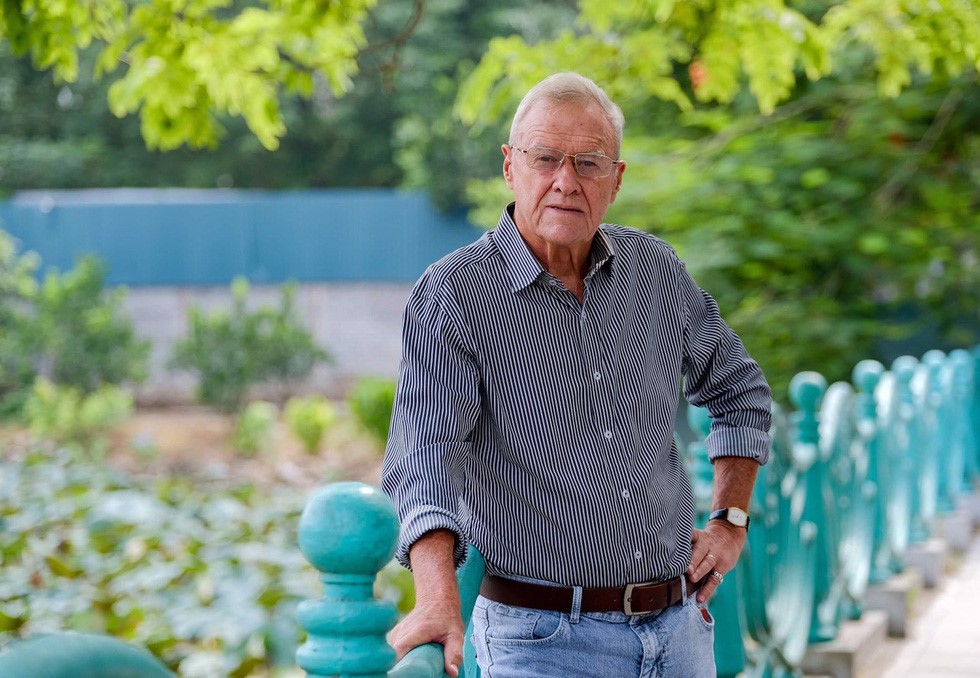
Mr. Graham Alliband is currently a short-term consultant for Aus4Skilsl program funded by the Australian Government
* Observing Vietnam’s heritages such as Ha Long Bay, Chua Huong, Bat Trang, Hue… what is good and bad in the way they have been conserved and “developed”?
Vietnam has an incredibly rich and varied natural and human-created heritage such as Ha Long Bay, Chua Huong, Hue, Hoi An and Ha Giang etc. not to forget the magnificent beaches of central Vietnam. Preserving this rich heritage is a challenge in trying to conserve what is unique and beautiful against the legitimate requirements of local and international tourism. As someone who has visited Ha Long over 100 times in the past to enjoy by boat its unique natural beauty I am honestly disappointed by the scale and nature of development on Ha Long Bay foreshores especially the erection of the huge cable car system and ferris wheel on a mountain top.
In contrast, the conservation of the historical structures and buildings in Hue which I have just visited is impressive. The restoration work in the citadel and in the tombs of former emperors has been executed with the highest quality of workmanship and with genuine care and the way tourists to these sites are handled is very systematic and appropriate. In my view there needs to be a strong national authority overseeing all developments which impinge on the natural beauty of unique geographic and man-made historical locations so that commercial considerations are not allowed to spoil the value and special qualities of the heritage that needs to be preserved for the Vietnamese people and for all mankind. Unfortunately, at some heritage sites it may be too late.
Note: Mr. Graham Alliband was speaking in his personal capacity and not on behalf of the Australian Government.
Source: Tuoi Tre Newspaper






